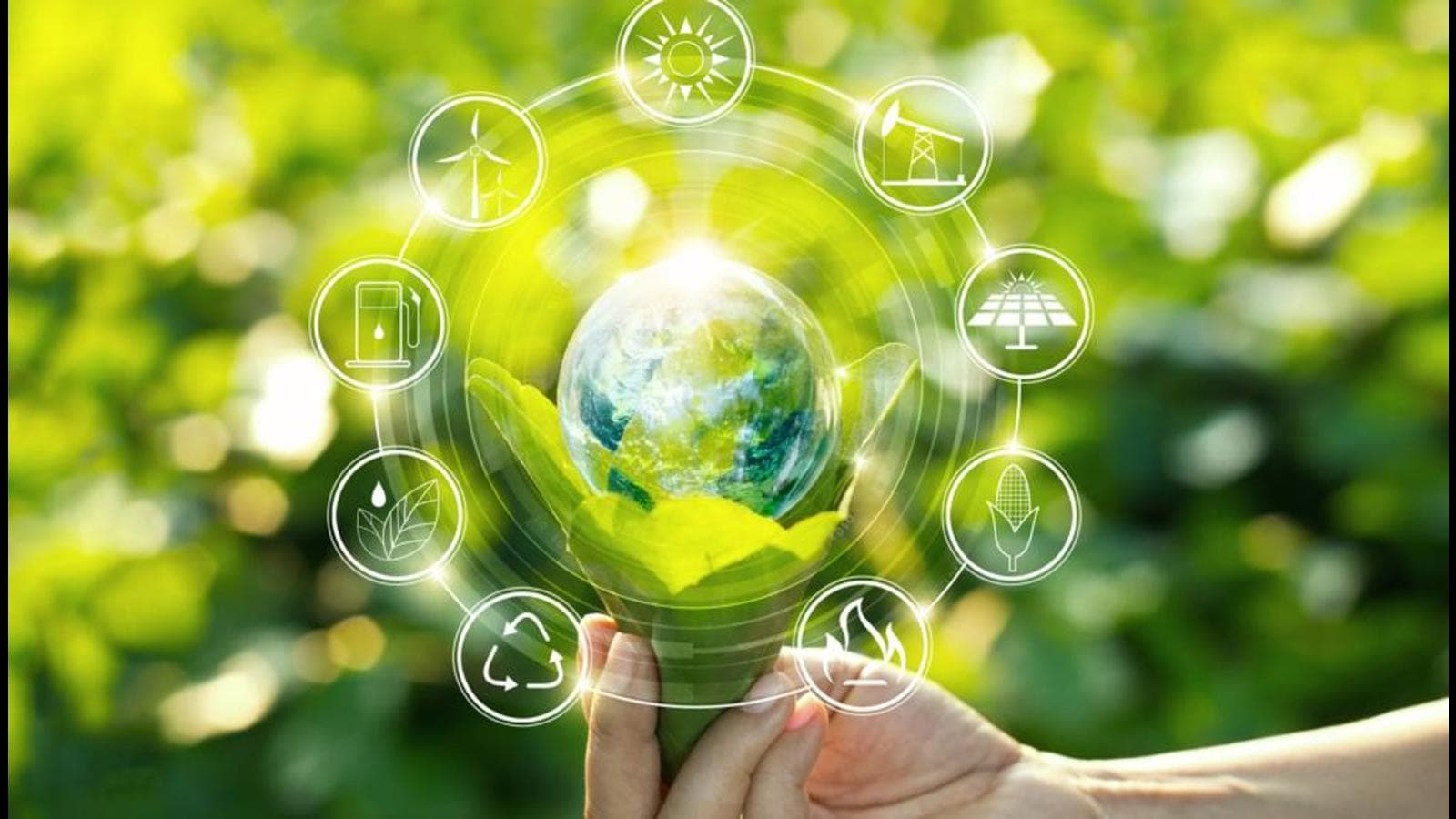GREEN ENERGY
is energy that is collected from renewable resources that are naturally replenished on a human timescale. It includes sources such as sunlight, wind, the movement of water, and geothermal heat Although most renewable energy sources are sustainable, some are not. For example, some biomass sources are considered unsustainable at current rates of exploitation. Renewable energy often provides energy for electricity generation to a grid, air and water heating/cooling, and stand-alone power systems.

What is Green Energy?
As we become more and more aware of our impact on the environment, the importance of transitioning from conventional energy resources to renewable sources is becoming clearer to consumers. Green energy is a solution to greater sustainability in our power grid, but the term is met with confusion by some, and commonly used to refer to renewables by others.
What is the Difference Between Renewable and Green Energy?
According to the Environmental Protection Agency (EPA), green energy provides the highest environmental benefit and includes power produced by solar, wind, geothermal, biogas, low-impact hydroelectric, and certain eligible biomass sources.
These renewable energy sources enter the power grid and are indistinguishable from conventional energy sources when you flip a light switch or charge your phone. Although renewable energy encompasses the same sources as green energy, this energy more broadly includes technologies and products which can have a considerable impact on both the local and global environment. Essentially, when you buy green power, you're also supporting various renewable energy projects and the investment in technologies that help them grow.
How Do Green Energy Products Work?
It's important to understand that the energy you consume will be a mix of green, renewable, and conventional energy regardless of which product you purchase. This is because all energy sources in the electric grid are mixed together when they enter the power transmission grid. From here, electricity travels to homes and businesses via the handful of regional grids that stretch across Canda and the United States.
So by buying green energy you are not directly purchasing green power for your home, but are instead paying for a small premium that covers the costs of putting more renewable energy into the grid. For those keen to go green at home who don't have space or funds for a solar panels array, this is the best way to measurably reduce the carbon footprint associated with your energy consumption. It's also the most affordable way to increase large-scale renewable energy investment and it gives more households and businesses access to green energy.
What is the Green Energy Premium For, Then?
If you're with a green energy supplier like Just Energy, you will pay a very small premium to buy green energy products—this is often akin to the price of a coffee a week or a movie ticket in most markets. This cost contributes to green energy projects, such as the development and maintenance of solar fields—so that we can move towards a cleaner, greener future together. As this movement gains more traction and funding, less of the energy that we consume will be produced by conventional methods which are unsustainable, contribute to air pollution, worsen global warming, and harm the environment.
Types of Green Energy:
There are many types of green energy coming from a wide variety of sources. Some of these types are better suited to specific environments or regions, which is why there are so many renewable energy that filter into the energy grid.
- Solar Energy
- Wind Energy
- Hydroelectric Energy
- Biogas
- Biomass
Why Is Green Energy Important?
Traditionally we have relied on materials such as coal, oil, and even kerosene to provide us with the energy we need. However, these fuels are non-renewable and expel pollution into our environment and atmosphere. As such, these sources will eventually run out, causing fears about shortages and access to them. But what's worse, is the environmental harm they inflict.
Burning these conventional sources of energy fuels global warming. Coal and oil pour toxic gases into the environment, impacting general health, and causing respiratory issues, and reducing live expectancies. Simply extracting oil and coal can destroy areas environments, economies, and livelihoods in the form of devastating oil spills.
Green energy will help us mitigate and sidestep at least some of these issues, and the quicker we move to renewable energy sources the better.